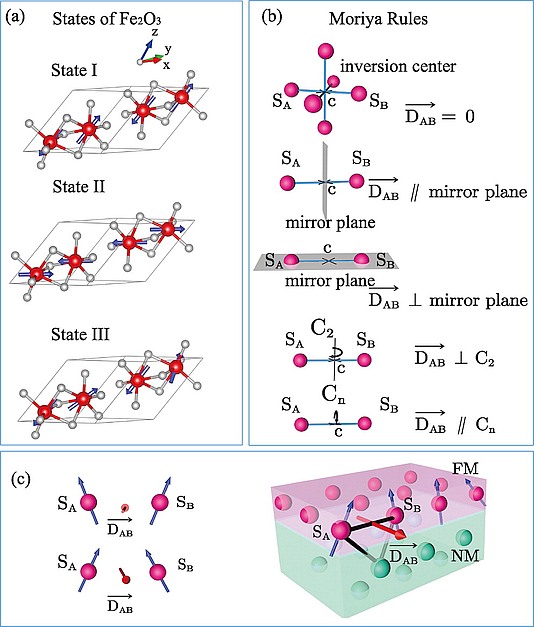Albert Fert, Mairbek Chshiev, André Thiaville and Hongxin Yang, J. Phys. Soc. Jpn. 92, 081001 (2023).

In this Review article, the authors briefly introduce the research history of DMI and its significance in the field of modern spintronics.
Since the early 1960’s, the discovery of Dzyaloshinskii–Moriya interaction (DMI) helped to explain the physical mechanisms behind certain magnetic phenomena, such as net moment in antiferromagnets, or enhanced anisotropy field from heavy metals impurities in dilute Cu:Mn alloys. Since the researchers unveiled the key role that DMI plays in stabilizing chiral Néel type magnetic domain walls and magnetic skyrmions, the studies on DMI have received growing interest. Governed by spin–orbit coupling (SOC) and various types of inversion symmetry breaking (ISB) in magnetic systems, DMI drives the formation of distinct morphologies of magnetic skyrmions. The authors recall the history of the early models of DMI, the density functional theory (DFT) approaches of calculating DMI, the discovery of magnetic skyrmions and chiral domain walls and their potential applications. Furthermore, we briefly discuss some prospects of interlayer DMI and possibilities of its ferroelectric control, including in systems comprising two-dimensional magnets.
Team: Theory and Simulation
Contact at SPINTEC: Mairbek CHSHIEV
HAL: hal-04098774, DOI: 10.7566/JPSJ.92.081001.




